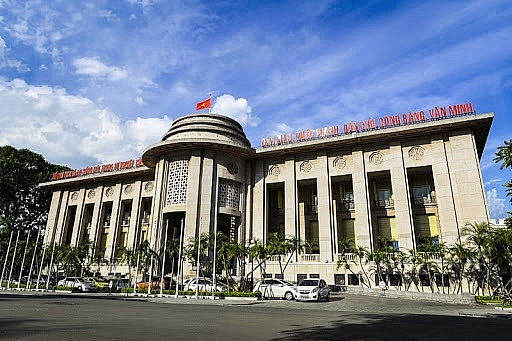SBV reneges on 49 per cent FOL proposal for fintech companies
 |
| The State Bank of Vietnam has reconsidered setting a foreign ownership limit in fintech firms |
According to the SBV, the draft decree on non-cash payments replacing Decree No.101/2012/ND-CP drew great interest from domestic and foreign individuals and organisations. In particular, stakeholders were keen to react when the SBV raised the proposal of adding a foreign ownership limit of 49 per cent for intermediary payment companies to the draft.
So far, the SBV received about 80 comments from relevant ministries and payment service suppliers, payment agents, as well as associations, many of whom agreed with the necessity of the draft's goals. Along with many concurring opinions, the SBV also received several motions against, since payment intermediaries are a new type of service based on technology and so foreign investment is essential in developing the new form.
The limitation would hamper foreign investment in intermediary payments and fintech. In addition, the new FOL would have a definite impact on many large intermediary payment service providers whose foreign ownership exceeds 49 per cent.
The SBV has decided not to add this FOL to the draft decree.
In addition, to implement the solutions set out in the prime minister's Decision No.149/QD-TTg dated January 22 this year on the approval of the National Financial Inclusion Strategy by 2025 with vision towards 2030 as well as improving access to financial services in the economy (the PM's Decision No.1726/QD-TTg dated September 5, 2016), one of the new clauses in the draft would regulate payment agents' activities.
Accordingly, banks can assign agents to provide part of payment services such as cash deposit or withdrawal, or invoicing payments of goods and services.
This new policy aims to support broader financial inclusion to people who previously had no bank accounts or had difficulties in accessing financial services, and especially people in remote areas.
Besides, this regulation also helps financial institutions to reach customers without having to expand their branch or transaction office network, while saving costs as well as improving business efficiency.
What the stars mean:
★ Poor ★ ★ Promising ★★★ Good ★★★★ Very good ★★★★★ Exceptional
Related Contents
Latest News
More News
- Private capital funds as cornerstone of IFC plans (February 20, 2026 | 14:38)
- Priorities for building credibility and momentum within Vietnamese IFCs (February 20, 2026 | 14:29)
- How Hong Kong can bridge critical financial centre gaps (February 20, 2026 | 14:22)
- All global experiences useful for Vietnam’s international financial hub (February 20, 2026 | 14:16)
- Raised ties reaffirm strategic trust (February 20, 2026 | 14:06)
- Sustained growth can translate into income gains (February 19, 2026 | 18:55)
- The vision to maintain a stable monetary policy (February 19, 2026 | 08:50)
- Banking sector faces data governance hurdles in AI transition (February 19, 2026 | 08:00)
- AI leading to shift in banking roles (February 18, 2026 | 19:54)
- Digital banking enters season of transformation (February 16, 2026 | 09:00)

 Tag:
Tag:




















 Mobile Version
Mobile Version